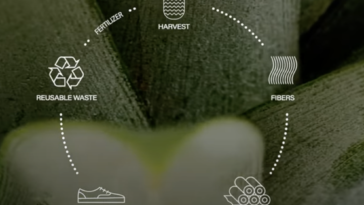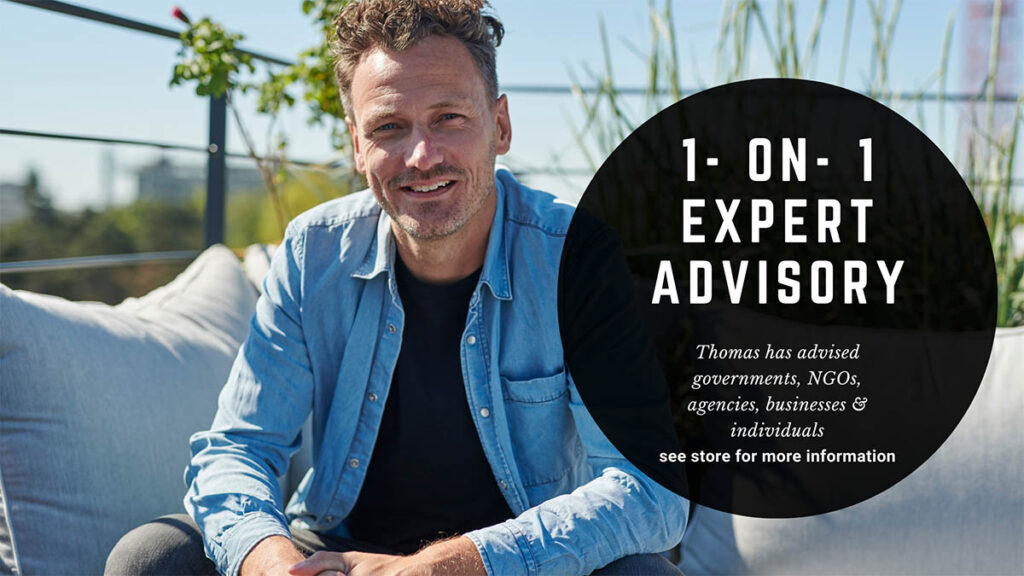Sustainability has shifted from a “nice to have” to a core element of business strategy for many global companies. Author, critic, consultant, and speaker, Thomas Kolster has been on this journey transition with major brands before it was popular to start making this shift. Also known as Mr. Goodvertising, he has more than 15 years advertising agency experience and believes that the communication industry has a pivotal role to play in promoting a more sustainable mindset and behaviour. His book ‘Goodvertising’ came out to great acclaim in 2012 and was about using advertising as a force for good.
Liz Gyekye (LG): How did you get into this space?
Thomas Kolster (TK): Around ten years ago, I was running a traditional advertising agency. Around that period, Denmark hosted a COP15 climate change conference in Copenhagen and a number of politicians descended into the country. This event helped to spark my career change. We had politicians coming into town and nothing really happened and I got incredibly frustrated by the lack of leadership from politicians in tackling climate change. I thought to myself “OK, I am working in advertising with brands, what can I do? What is it that companies can do?” Subsequently, I started to explore this issue and this led me to write my book called Goodvertising. In 2010, when I started doing research on the book, it was still pretty new for companies to get involved in these conversations and it was difficult to find any real good examples of companies doing much in this space.
(LG): What can the bio-based industry do to communicate positive stories effectively?
(TK): Consumers are demanding this because the sector has changed dramatically in the last two years or so. It’s about the industry finding the right balance. However, this can be really difficult for the industry to do because it can sometimes feel that every company is claiming to be greener than their competitors. So, it is a tough landscape to communicate in. US public relations and marketing consultancy firm Edelman has a trust barometer, which it publishes every year. In its recent survey, it showed that trust levels are going down with businesses and institutions. People are much more cynical about the role of big business, both in the US and Europe. So, today I think the biggest role for a company is to communicate that they are trustworthy and tackle this cynicism. This is where the brand can come in as a pivotal bridge between sustainability efforts and consumer expectations.
(LG): How can marketing help a sustainable company into a profitable one?
(TK): In general, consumer trends are changing. You just have to look at the surge in plant-based drinks. Nobody would have predicted a few years ago that this explosion would happen as quickly as it did. It just goes to show that companies need to be in step with rapidly changing consumer demands. The profitability question is tied together with consumer demands. For example, multinationals like Unilever and P&G are investing in the sustainability agenda. Essentially, a modern company needs to adopt sustainability into their principles.
(LG): How can we get the industry to rethink the way they communicate the bioeconomy?
(TK): We normally talk about marketing is from Mars and sustainability is from Venus. It’s just two different types of worlds. The world of sustainability can sometimes be complicated, science-based, and very irrational. If you want to communicate sustainability or put that it in a brand message, it needs to be emotional and it needs to be simple. This is what always seems to clash. It’s really about building that bridge between the two worlds. Essentially, the key point is to always engage your customers as early as possible in the process.
(LG): Can you give new brands getting involved in the green field any advice?
(TK): I think it’s about understanding sustainability not as a responsibility but as a possibility. That’s a change of mindset that needs to happen – embracing a possibility rather than a responsibility. Historically, a lot of companies saw corporate social responsibility as something that a company “had to do”. If you are operating within the EU, you have to work in a very tightly regulated atmosphere when you deal with some of these issues. Unfortunately, I think this has created a mindset of “this is just something that we have to do” in relation to the sustainability agenda, rather than see it as a genuine business opportunity. I am optimistic about businesses who understand that sustainability is an opportunity for connecting with a market that is rapidly evolving. Personally, that is why I am excited about working in the sustainability field.
I almost compare it to the early days of digital. Back in the days, people were saying “Why should I engage in coding? Why should I engage with artificial intelligence? This is not interesting!” Today, everything is about tech. The possibility mindset is really important. It’s not about doing something as a result of a response, but doing something because you actually see new exciting possibilities to create new products, new services and to attract new talent, for example.
Alternatively, you can see this as an exciting opportunity to actually rebrand your company. It is dangerous for a company to stay quiet on this sustainability issue because there could be a rival company who could shout louder and share their story but not necessarily be truly sustainable. However, the latter could still get more attention than the former. This is one of the dangers. The UN Sustainable Development Goals are a good starting point to get more CEOs involved in sustainability issues. Today, I see a pivot from companies taking sustainability goals seriously. Take Dutch biochemicals company Corbion, for example. They really think about how they can minimise waste across the business. They have new ideas on how they can turn waste into a resource. This is a “possibility framework”.
(LG): What would you class as good advertising?
(TK): It’s not necessarily that advertising per se is needed. It’s very important to be conscious about the whole company story and what it is your company is selling. I think it’s about understanding that from a sustainability perspective as well. One part of it is the storytelling part and the other thing is “story doing”. Through your product you are showing a sustainability trend – building your storytelling into your product. The product itself has a story built into it. For example, beer brand Carlsberg recently decided to eliminate some if its six-pack rings and launch a ‘snap pack’. This helped them to get rid of tons and tons of plastic. Essentially, they built a story within their product. This is a way of building trust. It’s not just something you state, but it is something you can demonstrate through your products and services.
(LG): What do you think of the term bio?
(TK): It sounds a bit technical. For an outsider looking in, it doesn’t add a lot to the conversation. It doesn’t really resonate with me in a specific way, so it is difficult to say. All in all, environmental terms are a challenge across all sectors. Look at the word ‘sustainability’. It hasn’t done anything good for the sustainability movement because people question what the word really means. There are so many people reading different meaning into that specific word. It’s very difficult to focus on one term to encompass everything because there is so much confusion.
(LG): 2019 has gone off with a bang. What are your plans for the rest of the year?
(TK): I am working on a second book. I am looking to get this published in the 2nd quarter of this year. There is a lot of focus going into this. It’s about pushing this sustainability agenda as hard as possible because there is a long way to go. Even though I am optimistic about the progress that is happening, I am also scared about some of the cynicism that’s going on in the market. So, it’s going to a busy but exciting year. Anybody working in this field will also not fail to notice the lack of leadership from our politicians on this issue. However, there is a tremendous opportunity for business to step in and show leadership and collaborate with peers to really lead this agenda.









